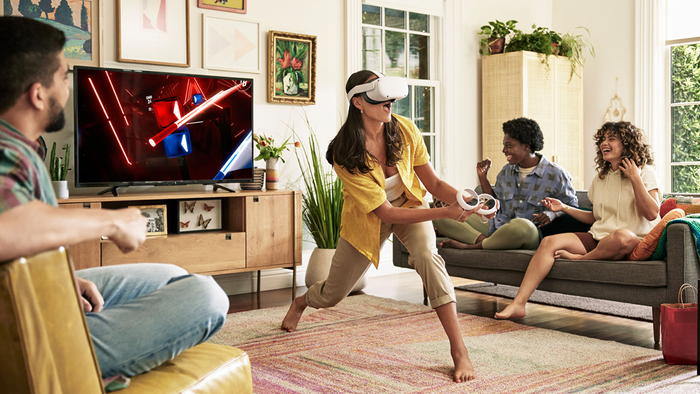Nintendo's Satoru Iwata has admitted that the company is finally conceding to the free-to-play business model -- although he says Nintendo's established franchises won't be affected any time soon.

In a candid interview with Japan's Nikkei, Nintendo president Satoru Iwata admitted that the company is finally conceding to the free-to-play business model -- although he was keen to note that Nintendo's established franchises won't be affected any time soon. As translated by NeoGAF, Iwata said that the video games industry is changing, and that it now makes sense for Nintendo to apply its creativity to the space. "We [as an industry] can now do distribution by digital means as well as micro-transactions, and the ways to obtain money through supporting entertainment have increased," he noted. "It's a change in our landscape; competing in game-quality, and working on how money is obtained, I think both are things that require creativity." "Therefore, I have no intention of denying the free-to-play model," he continued, adding, "If we were to talk about if Nintendo were to do that, however, I am not so much inclined to do that with Nintendo's established well-known products, where people trust their interesting-ness. For example, for people who are used to Mario games costing 4,800 or 5,800 yen, we will not have a proverbial door to full enjoyment that can only be unlocked via payment." He noted that Nintendo is still interested in releasing extra downloadable content for these titles, however, as they allow people who want more stages to continue playing -- as it did with New Super Mario Bros. 2. When it comes to free-to-play, Nintendo is instead looking at new IP. "For new titles with no established base, if, in the process of development, we found it to suit the free-to-play model, we might follow that route, or we might do something like 'Cheap-to-play'," he said. "Our sales methods have been freed up and I have no desire to extinguish that freedom. If we were to release something like that, it is not a betrayal but the birth of an interesting idea through our new found freedom, that's all." He stressed, "I am not talking about changing how we sell Mario or Pokemon." It's notable that in 2011, Iwata said that he had "no intention" of delving into the free-to-play gaming boom, as he believed Nintendo should "try to maintain the overall value of video games." This isn't the first time Nintendo has gone back on its word, however, as it had previously said that it would not delve into DLC.
Animal Crossing 3DS gets help from smartphones
Elsewhere, Iwata discussed sales of Animal Crossing for the Nintendo 3DS, which launched in Japan last November. He admitted that he had been left "dumbfounded" by the range of players picking up the game. "If we look at the first three weeks of Animal Crossing sales to the end of November, the highest group [registering the game] is 19 to 24 year-old women," he said. "This is an age-range that is typically found in fewer numbers for Nintendo. I've never seen anything like it; a game that sells like this on a Nintendo hardware." He added, "If we look at the male-female ratio [for the 3DS] as a whole, it divides into 69 percent males, 31 percent female, but if we limit it to just those customers that purchased the hardware at the same time as Animal Crossing, the percentages become 44 percent male and 56 percent female." This, says Iwata, shows that the arguments against dedicated handheld consoles are not strictly correct. "The common argument going on right now is that since smartphones exist, there's no need for specialised game machines anymore, right? But, these 19 to 24 year old women are the 'smartphone people'. We often say that casual female users do not need specialised gaming machines, but here we see them reconfirming the value of those systems," he explained. Iwata believes, in fact, that smartphones have actually helped to sell the game. "The ability we added to create furniture with interesting designs and share it through various means, coupled with our customers' creativity created an amplification of sorts. It was really interesting. What really helped to spread this around was social media, and smartphones. What really sold Animal Crossing to women this time was, without question, smartphones."
About the Author(s)
You May Also Like







